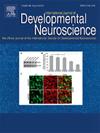Evaluation of Orexin-A, Adiponectin and Apelin-13 Serum Levels in Children Diagnosed With Attention Deficit Hyperactivity Disorder
Abstract
Objective
This study investigates the role of orexin-a, adiponectin (HMWA) and apelin-13 serum levels in the etiopathogenesis of attention deficit hyperactivity disorder (ADHD), a neurodevelopmental disorder with unclear aetiology involving neuropathological, genetic and environmental factors.
Methods
The study involved 37 children with ADHD and 35 healthy controls, aged 6–18 years, with no history of other physical or psychiatric illnesses and no psychotropic medication use in the last 6 months. Serum levels of orexin-a, adiponectin (HMWA) and apelin-13 were measured using enzyme-linked immunosorbent assay (ELISA). ADHD symptoms were assessed through Diagnostic and Statistical Manual of Mental Disorders-5 (DSM-5)–based clinical interviews, Conners Parent and Teacher Rating Scales and Wisconsin Card Sorting Test.
Results
No significant differences in serum orexin-a, adiponectin (HMWA) and apelin-13 levels were found between the ADHD and control groups. Additionally, there was no relationship between orexin-a, apelin-13 and adinopectin levels and ADHD symptoms and Wisconsin Card Sorting Test results. Analysis of adiponectin levels in preadolescent children aged 6–11, adjusting for age and BMI, revealed a statistically significant reduction in the ADHD group (p = 0.002).
Conclusion
The results did not demonstrate any correlation between ADHD and the levels of orexin-a and apelin-13. However, the study revealed that children with ADHD, aged 6–11, exhibited decreased adiponectin concentrations. These results suggest that a decrease in serum adinopectin levels may be associated with ADHD in children.

 求助内容:
求助内容: 应助结果提醒方式:
应助结果提醒方式:


